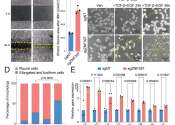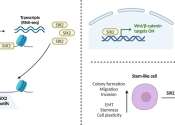Prostate cancer study reveals molecular switch linked to lineage plasticity, therapy resistance
Two genes working in tandem play a critical role in shaping the identity and behavior of prostate cancer cells and their response to treatment, UT Southwestern Medical Center researchers report.
Jun 5, 2024
0
0









